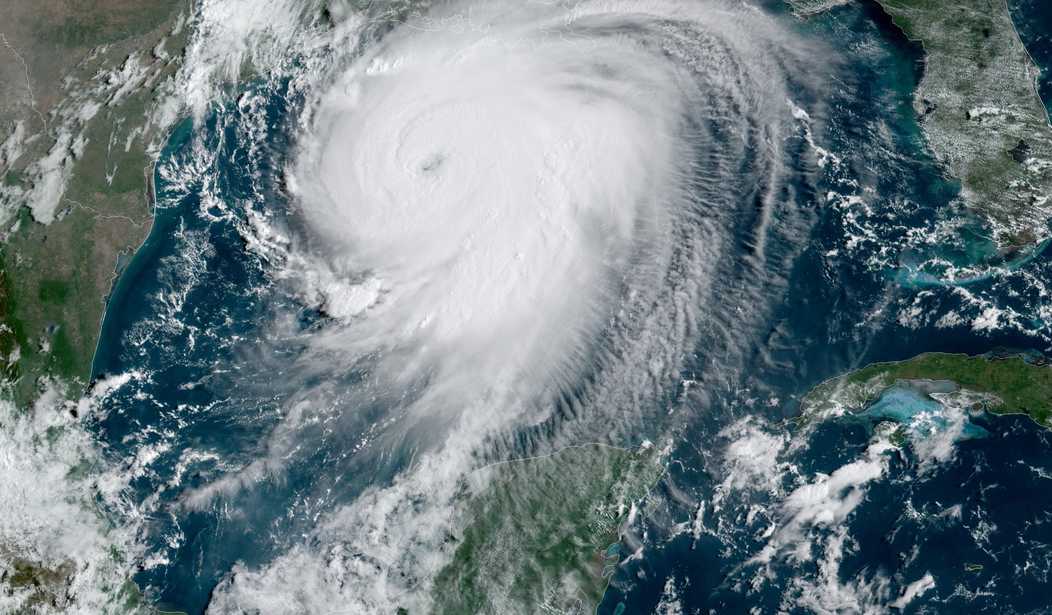As President Biden chooses to beg some of the world’s most notorious dictators to drill for more oil, prices continue to rise even when they agree. If you haven’t picked up on the new energy strategy, you can think of it as a “Not in my backyard,” or NIMBY, energy policy. Instead of pulling the abundant oil and natural gas out of our own soil, the Biden administration will erect unreliable solar and wind farms and import the fossil fuels that run society from countries where the extraction methods are far more environmentally destructive.
Biden’s approach could affect you in ways you may not have considered. Because U.S. production is falling, it creates a global shortage, which contributes to rising prices. Rising prices affect the price of goods and services because of increasing transportation costs. However, what if it could leave you to defend yourself while Democrats work feverishly to disarm you?
The Isabella County Sheriff’s office in Michigan has already blown through its entire fuel budget for the year. To keep costs down, they plan to respond to some non-emergency calls by phone to try and resolve them. As any law enforcement officer can tell you, a non-emergency can quickly become an emergency. This policy may result in needless tragedies in a large county with longer travel times.
How many other rural and exurban counties could run into a similar issue? The cost of sending first responders has increased dramatically. The average price per gallon in Michigan is over $5.00. Last year the national average was $3.06. It hovered around $2.50 on Biden’s Inauguration Day. And our Commander in Chief told us plainly that we should not expect to return to lower prices anytime soon. He told Americans, “The idea we’re gonna be able to, you know, click a switch, bring down the cost of gasoline is not likely in the near term.” During the week after he sent that message, the average price jumped around $0.25.
Here’s another way Biden’s NIMBY energy policy could fail Americans. Yesterday, the first named storm popped up in the Gulf of Mexico. After generating copious amounts of rainfall and inland flooding, a low-pressure system moved out over the Atlantic Ocean and organized into Tropical Storm Alex on June 5. Hurricane Agatha made landfall on the Pacific side in Puerto Ángel, Oaxaca, Mexico, on May 30. According to NOAA, Agatha was the strongest hurricane on record to make landfall along the Pacific coast of Mexico in May. The season is just beginning.
Related: Carter-tastic! World Bank Warns of Persistent Stagflation, Offers Plans to Make It Worse
Hurricanes, tornadoes, and severe summer storms can cause damage to people’s homes. In addition to the price of lumber and other building materials rising precariously over the last 12 months, most homes and buildings in America have roofs made of asphalt-based products. Asphalt is a byproduct of the oil refining process.
Because I worked in the industry, I can attest that nearly all shingles and commercial roofing materials used domestically are produced regionally within the United States. The weight of the finished product makes shipping internationally, and even long distances domestically, too costly. Plants in the U.S. rely on receiving asphalt from domestic refineries, and the price of the product is closely correlated to the price of a barrel of oil. As American refineries reduce production and the price of oil rises, so will the cost of a bundle of shingles or a roll of commercial roofing.
Construction crews use most roofing products in reroofing existing buildings due to age or storm damage, not new construction. When large storms hit, newsreels often show roofs waiting for repair covered with blue plastic tarps to protect the rest of the structure. Bad news. Making the plastic tarps requires petroleum products derived from oil and natural gas. They will be more expensive and in short supply, along with thousands of other products that use chemicals derived from fossil fuels.
Think again if you believe it is a snap to convert to metal roofing. I am waiting 90 days for a small amount of aluminum railing to repair a retaining wall. Metal shortages are everywhere. Metal production is also not accomplished with low-density power like wind and solar. Domestic production costs will rise, and imports, from China of course, will be necessary. You may want to learn to thatch if you live in Tornado Alley or Hurricane Row.
Biden called his NIMBY energy policy an “incredible transition.” It is incredibly burdensome at the gas pump and on the monthly energy bill for most Americans. However, as the upward price pressure on fossil fuels continues, Biden’s pro-scarcity policy could make Americans less safe and their homes and businesses less secure. It is a self-inflicted wound to the nation with the largest reserves of fossil fuels and the most advanced, environmentally sound methods for extracting it.










Join the conversation as a VIP Member